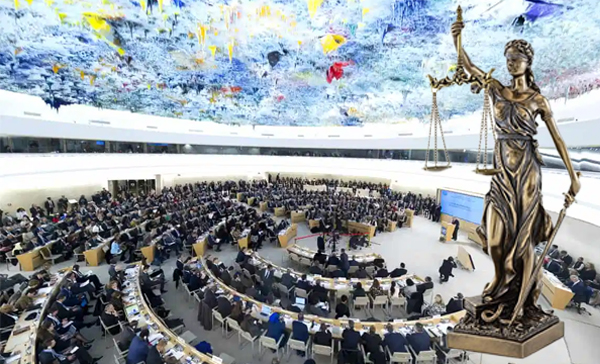Genocide of Tamils in Sri Lanka. UN Failed to apply R2P and protect the Massacre of 147,000 Tamils.
It is very sad that United Nations an international institution particularly was initiated to protect the civilians during the conflicts and other matters affecting the civilians failed from in its duty by ignoring the genocide in Sri Lanka. Several UN agencies, along with various other intergovernmental organizations [IGOS[ and international non governmental organizations [INGOS] based on the war zone serving the people were compelled to leave the areas of war zone on the directive of the then Sri Lankan Defence Secretary [Now the President of Sri Lanka], although very large number of Tamil civilians demonstrated pleading with the UN agencies to stay because of the protection of their presence would ensure their safety.
After several criticisms from several Human Rights Organizations, the UN Secretary General Ban-ki-Moon appointed a panel tasked with assessing the situation and submitting a Report.
The PetriePanel was tasked with assessing the contribution and effectiveness of the UN system in responding to the escalating fighting and in supporting the Secretary-General’s political engagement, identifying institutional and structural strengths and weaknesses, and providing recommendations for the UN and its Member States in dealing with similar situations.
The Petrie panel reviewed about 7,000 documents, including internal UN exchanges with the government of Sri Lanka.
The panel also met with a large group of people, including representatives of civil society and member-states, and its recommendations were built on previous reviews of UN actions in the theatres of escalated conflict.
The Secretary-General said as an immediate first step, he will organise a senior-level team to give “careful consideration” to the Report’s recommendations and advise him on the way forward. “Other actions will follow in short order,” he added.
The Petrie panel came to be appointed as the UN operation in Sri Lanka faced criticism that it had failed to protect a large number of civilian deaths in the final battle. Sri Lanka government dismissed the Petrie report as “unsubstantiated, erroneous and replete with conjecture and bias”.
Military had eliminated the rebel Tamil Tigers in 2009. Nearly three decades of ethnic conflict in Sri Lanka had left over 100,000 dead.
The war against Tamils is not an internal uprising of an ethnic or other distinct group against another exercising authority or control over the other. It was a war between two nations. Historically, the Tamil nation had a state of its own for at least four centuries before it was conquered by Portuguese colonial power in 1619 almost 114 years after they first landed in Ceylon in 1505.
This war between the Tamils and Singhalese nations was far worse than WW11 in every aspect than any other wars in regard to the scale of intensity, death, despair and destruction. The war aimed at genocide of Tamils was replete with horrendous abuse of human rights, war crimes and humanitarian laws governing conduct of wars. It is a shame, disgrace, and of course humiliation to those countries and human rights organizations committed to uphold human rights and respect international laws and conventions. As the world labeled the Tamils they are not a terrorist group or organization. They took up arms to fight against state terrorism All men are, by nature, free and equal, and have certain inherent and inalienable rights, among which may be reckoned the right to bear arms in defense of themselves. The Preamble to the UN Universal Declaration of Human Rights clearly states “Whereas it is essential, if man is not to be compelled to have recourse, as a last resort, to rebellion against tyranny and oppression, that human rights should be protected by the rule of law.”
As variously stated throughout history people have the right and the duty to overthrow tyrannical governments that acts against their common interests. Taking arms in self-defense against state terrorism is definitely not terrorism. It is an inalienable right of self-defense under a democratic polity. We fought for justice and peace and above all we waged a just war against genocide of Tamils.
It is very important to note that, In the strict sense of the word, it’s not a post war situation. Instead, it is a war by other means. In addition to heavy militarisation, we can see a massive structural change that is been carried out by the Sri Lankan government through acquisition of land, Sinhala settlements, building of military cantonments, acquiring key trade and commercial locations, changing name boards to all-Sinhala names, building of Sinhala Buddhist shrines, claiming ancient Tamil Buddhist sites as Sinhala Buddhist sites and so on and so on. This phase existed prior to the armed phase before the 1980s. It has now gone up to a maximum speed after the military defeat of the armed resistance of the Tamil movement. No attempt has been made to address the root causes of the conflict. What is happening is the consolidating of the unitary state structure and the Sinhala Buddhist ideology of re-conquest with the aim of cultural homogenisation of the Tamil region. It is an irony to see how in this process of ideological and military re-conquest of the Tamil region those Sinhalese who backed the same process are being silenced by the government, let alone the other voices of dissent in the Sinhala society.


